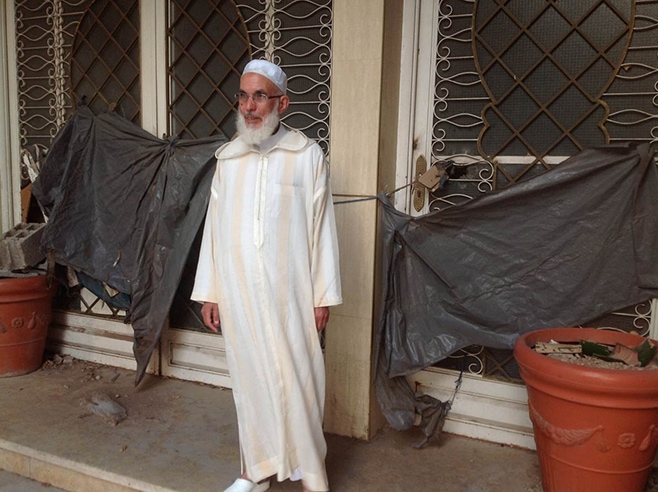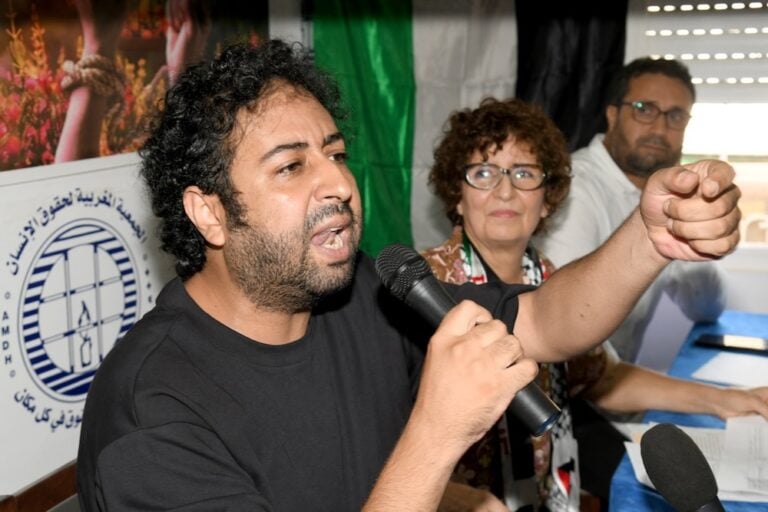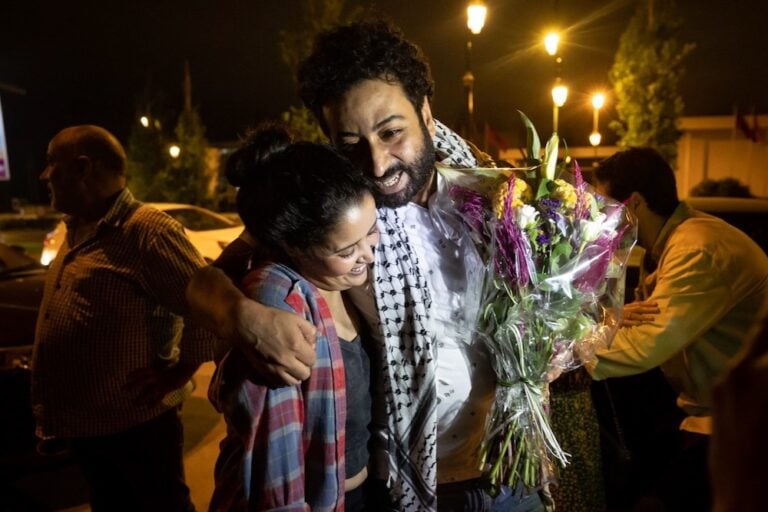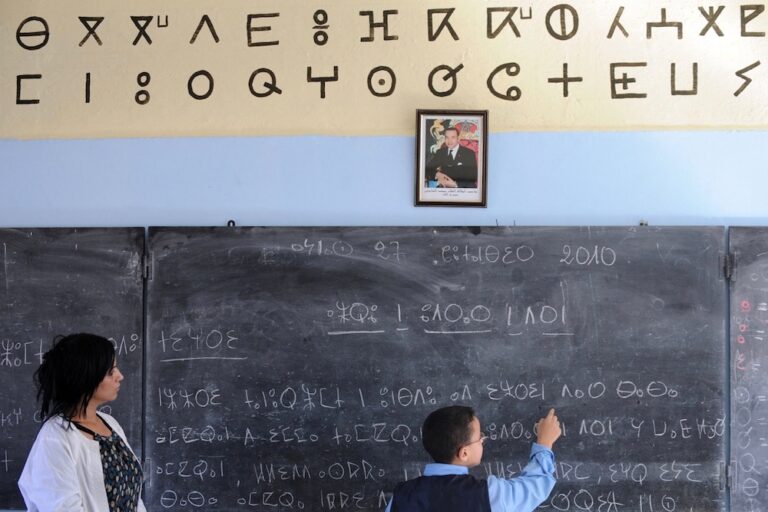Houses belonging to two members of the Islamist movement Adl wa’l Ihsan, including its new leader, Mohamed Abbadi, have been padlocked for seven years on the grounds that they were used to hold "unauthorized" meetings.
Morocco should stop arbitrarily sealing private homes on the grounds that they were used to hold “unauthorized” meetings, Human Rights Watch said in a letter sent yesterday to the interior and justice ministers. Houses belonging to two members of the Islamist movement Adl wa’l Ihsan (Justice and Spirituality), including its new leader, Mohamed Abbadi, have been padlocked for seven years, their owners unable to enter or maintain them.
In an earlier exchange of letters with Human Rights Watch, authorities did not clarify the legal basis for these closures. They did not claim the homes were linked to any crimes other than meetings that had been held there that, in the authorities’ interpretation of the law, required prior authorization.
“Morocco has padlocked two houses for seven years merely because they were used for unauthorized peaceful gatherings,” said Joe Stork, deputy Middle East and North Africa director at Human Rights Watch. “The law in many countries lets authorities seize property used in serious crimes but that is hardly the case here.”
In recent years, Moroccan authorities sealed several other homes belonging to members of Adl wa’l Ihsan on the same grounds, but have restored them to the owners in all but these two cases.
Morocco’s 2011 constitution guarantees the right to property, to freedom of association, and access to the justice system for all persons to defend their rights.
Adl wa’l Ihsan considers itself a legal association under Moroccan law and says the meetings in question were private and therefore required no prior permission.
Authorities, in their letter to Human Rights Watch, did not indicate whether they consider Adl wa’l Ihsan a legal association.
Human Rights Watch has closely followed the case of one of the two homeowners deprived of their property, Lahcèn Atouani, of the eastern city of Bouarfa. Authorities have effectively deprived the 55-year-old school principal of any recourse to fight the closure. The administrative court refused to hear his appeal on the grounds that judicial and not administrative authorities made the decision to seal the house. But when Atouani filed a complaint with the office of the prosecutor, he was told the decision was an administrative measure, not a judicial one.
Both owners, Atouani in Bouarfa, and Abbadi in Oujda, have suffered financial losses, as they have been unable to use or sell the houses, maintain them, or secure them from vandals.
The Moroccan authorities should restore the sealed houses to their owners and compensate them if, after an investigation, the sealing is found to have been unjustified, Human Rights Watch said.
(Read the Moroccan authorities response to Human Rights Watch’s letter on the sealing of homes of al Adl wa’l Ihsan Association members.)



